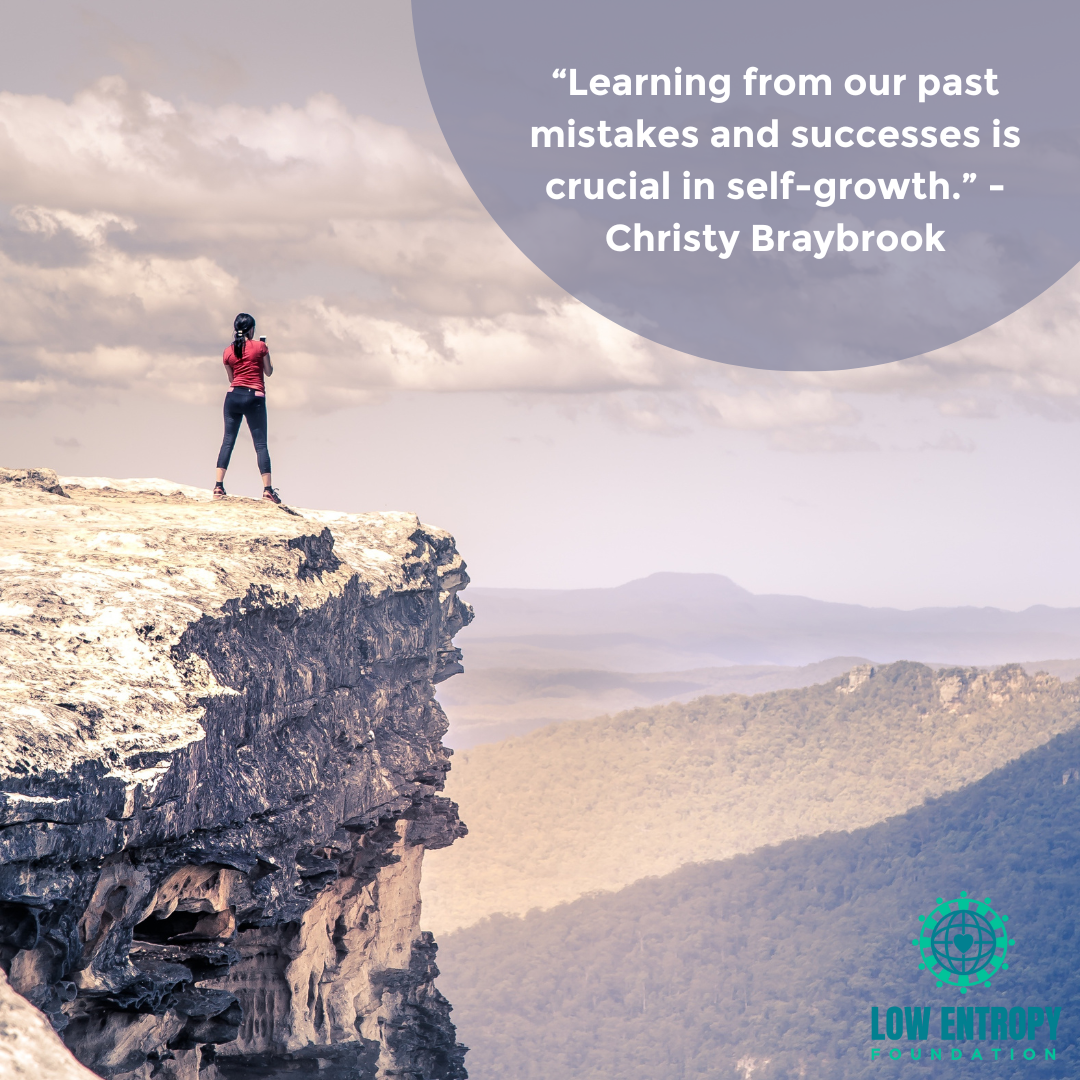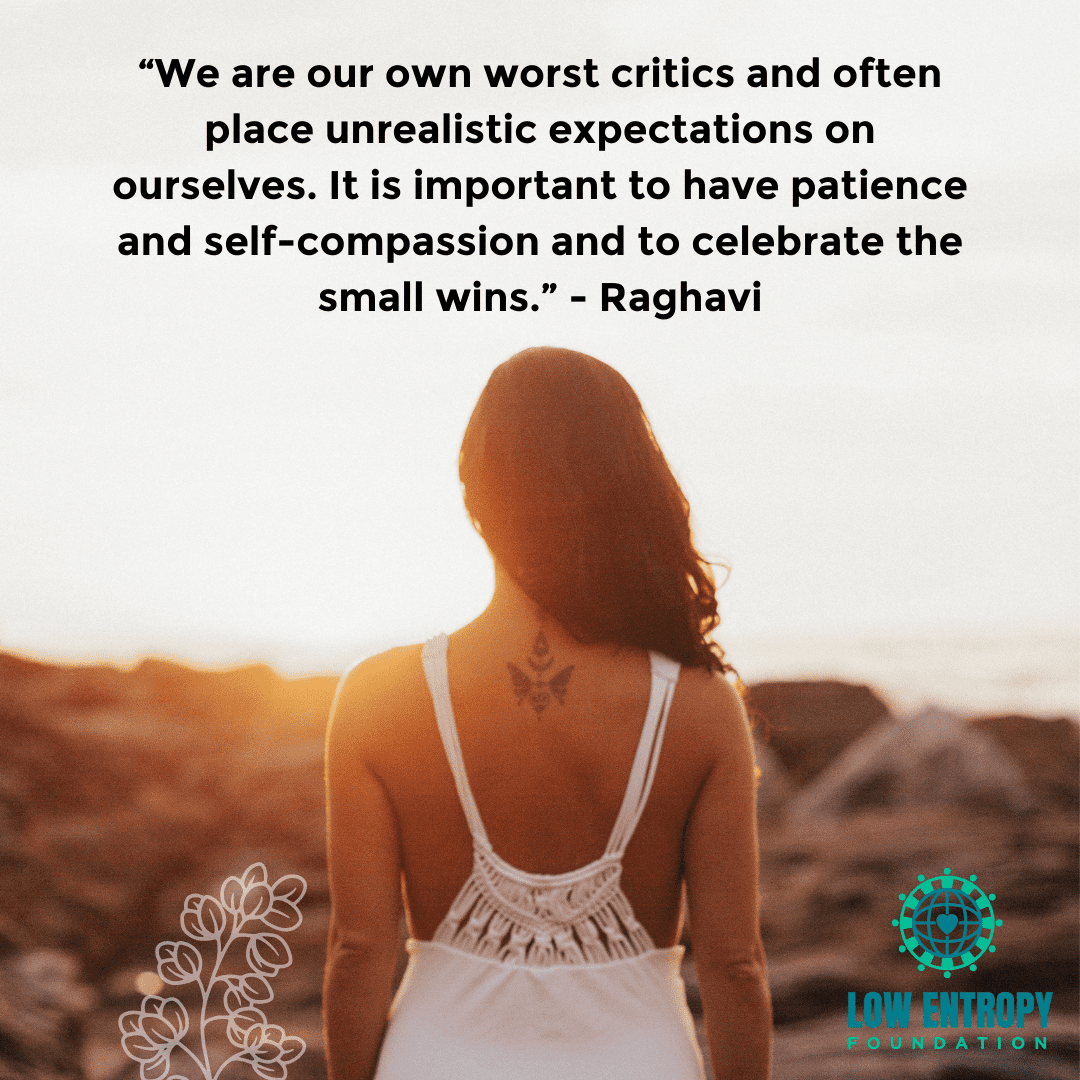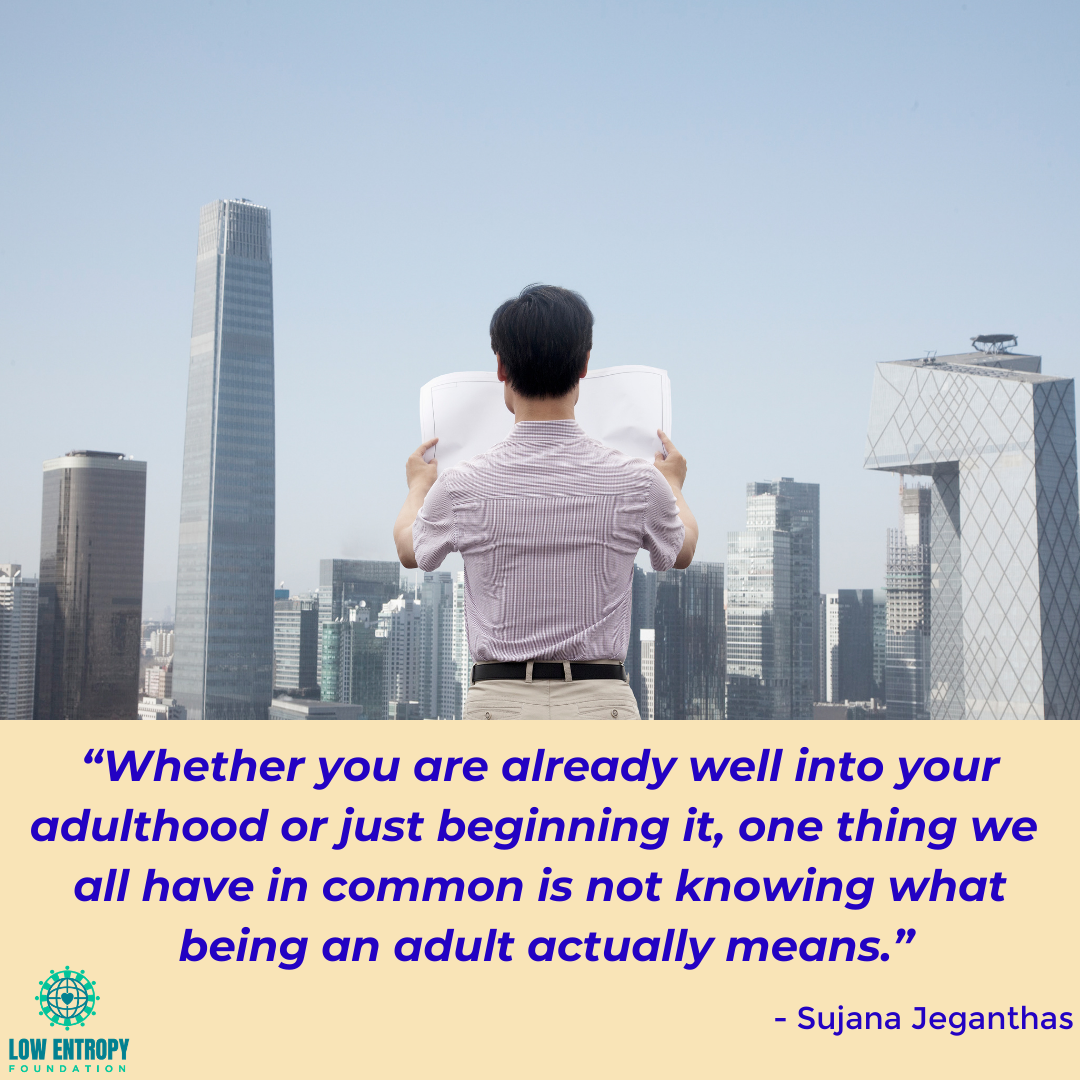Christy Braybrook (she/her/hers], Low Entropy Volunteer Writer
I have made countless mistakes over the course of my lifetime in varying degrees of severity. Afterwards, I say that timeless phrase “I’ll never do that again” or “Please ___, allow me to get out of this situation and I will never ___ again.” Then I would find myself with the exact problem or in the same situation once again. It’s a frustrating feeling. Like a terrible déjà vu coupled with the feelings of shame, guilt and self-doubt. I should’ve known better, but I didn’t. Then I realized through some self-exploration and a bit of help from a counsellor that experiencing a life lesson doesn’t automatically mean you learned anything. Personal growth is not something that is guaranteed. It is something you must work for consistently your entire life. Nothing in this world is free or easy for that matter, especially not a valuable life lesson.
Success can be looked at the same way. We often look at someone with a great physique and feel a tinge of jealousy. Why can’t I be that weight or why can’t I drive that car? However, we fail to realize that success is about consistency. It is about considering what works and what doesn’t. No one builds a strong, healthy body overnight. They had to get up early and go to the gym in the morning before work and focus on eating balanced, nutritious meals consistently. They made small choices everyday that allowed them to successfully reach their goals.
So how can we create the positive life we want by looking at our mistakes and successes? Unfortunately, I have yet to discover a method that prevents me from ever making a mistake again, but I have found some strategies that can help anyone learn from their mistakes.
1. Acknowledge your mistakes
- As much as we want to run from our missteps and pretend they never happened, this does nothing to help your personal growth. Instead, admit to yourself that your actions were wrong. Fully accepting your mistake is the first step in this journey.
2. Analyze the situation
- Look at your actions and the consequences they led to. Ask yourself the difficult questions whatever that may be. Who, What, When, Why and How? Look at all the factors in the situation and pay special attention to anything that repeats itself.
- Realize that this is an opportunity to learn and grow. Practice positive self-talk and remember that everyone makes mistakes.
- Find the root cause of your issue/mistake. This will help you later on when you are identifying strategies to help you improve.
3. Apply your knowledge
- Once you analyze the situation and get to the root cause of the issue, the hard part begins. This is not to discourage you, but to make you realize that changing habits/natural reactions is challenging.
- Use the knowledge from the previous step to create an action plan. Prevention is key and planning is crucial. This allows you to know what to do or how to react when a similar circumstance happens.
4. Practice while staying positive
- Don’t get discouraged if things don’t go as planned at first. Repeat the steps- Acknowledge, Analyze & Apply. Adjust anything that didn’t work or could be improved.
- Remember that change does not happen overnight for anyone.
These steps are focused on correcting failures, but it applies to our successes as well. I framed it this way because it is easier to build on successes than it is to recover from failures. Naturally we feel embarrassed or want to avoid thinking about our mistakes. However, this is the opposite of what we should really be doing if we want to foster a positive life. Sometimes it is the hard work that needs to be done in order to be successful. Whatever your definition of success is because it varies greatly.
One of the more difficult steps is staying positive while practicing our new skills or using our new knowledge. It is easy to get discouraged and fall back into old habits. That is the comfortable thing to do, but it will not help you grow as a person. Even if we make a mistake along the way, it doesn’t mean we have failed. Simply get back up, remind yourself of your plan and keep trying. Surround yourself with supportive people that encourage you and help you achieve your goals.
Learning from our past mistakes and successes is crucial in self-growth. I like to write in a journal to keep track of how I am doing, what is holding me back and what I can do to improve. Find something that works for you and stick with it. There are a lot of online resources that can help you as well. How you get to the end result doesn’t matter, all that matters is that you feel you were successful in achieving your goals.
—
Christy Braybrook (she/her) is a HR professional with a passion for self-improvement. In my spare time I like to volunteer and help those in need.









